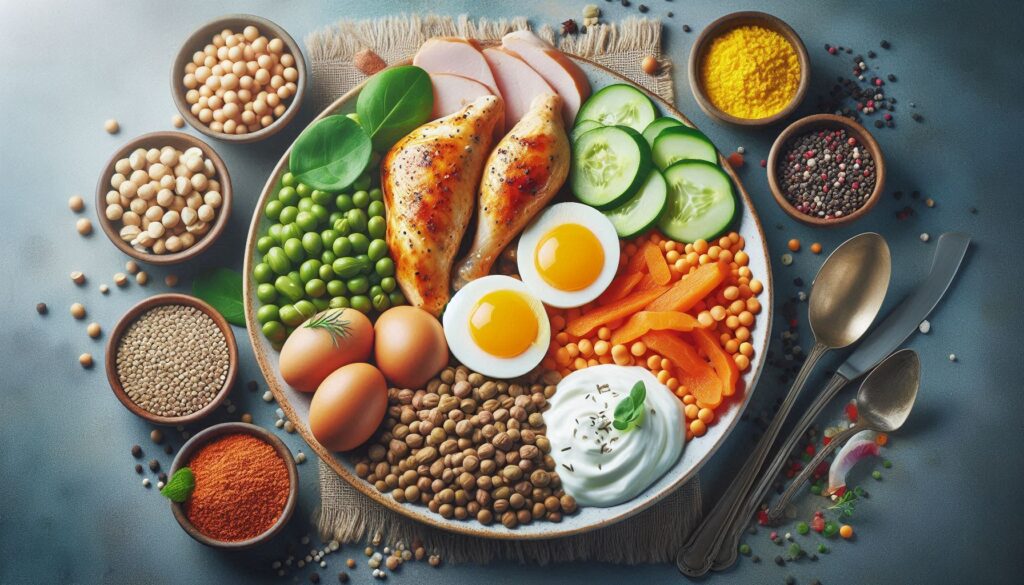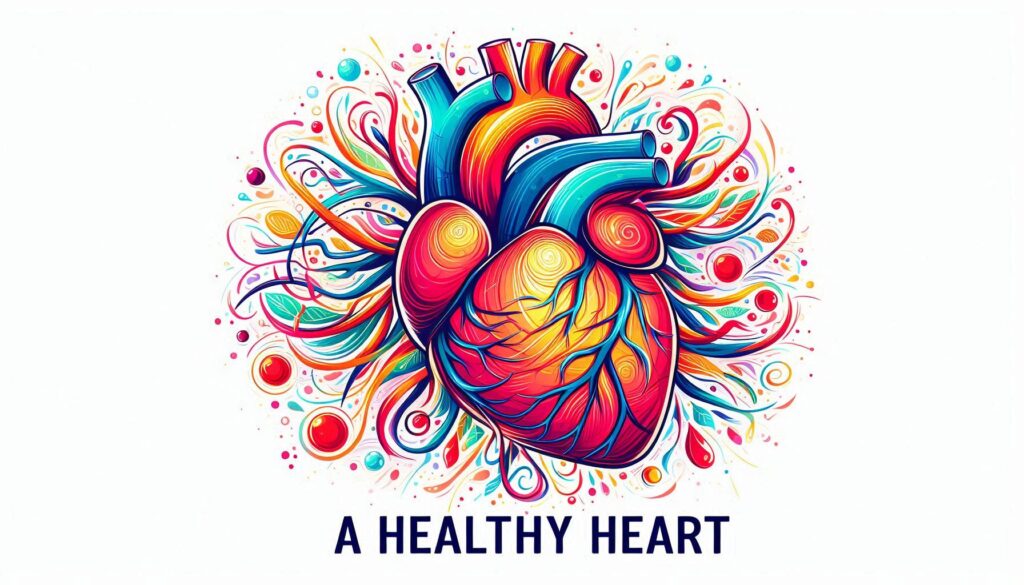
Article 12 of our Series “Nourishing Your Whole Self: The SaziBox Health Guide to Holistic Nutrition”
Welcome back, gentlemen, to the SaziBox Health holistic nutrition series! Today’s focus is on you, and the specific nutritional needs that support men’s health throughout life. We’ll delve into testosterone optimization, muscle building, heart health, and strategies for preventing prostate cancer. By making informed food choices, you can fuel your strength, vitality, and long-term well-being.
Testosterone: The Male Hormone

Testosterone plays a pivotal role in muscle mass, bone density, energy levels, mood, and sexual function. While testosterone levels naturally decline with age, a balanced diet and healthy lifestyle can help maintain optimal levels.
- Key Nutrients for Testosterone:
- Zinc: Found in oysters, beef, beans, and nuts.
- Vitamin D: Sunlight exposure, fatty fish, and fortified foods are good sources.
- Magnesium: Abundant in leafy greens, nuts, seeds, and whole grains.
- Healthy Fats: Avocados, olive oil, and fatty fish support hormone production.
- Lifestyle Factors:
- Stress Management: Chronic stress can lower testosterone levels. Incorporate relaxation techniques like meditation or yoga
- Quality Sleep: Aim for 7-8 hours of sleep per night.
- Regular Exercise: Strength training and high-intensity interval training (HIIT) can boost testosterone.
Muscle Building: Fueling Growth & Repair

Whether you’re a seasoned athlete or simply looking to maintain a healthy physique, protein is key for muscle building and repair.
- Protein Needs: The recommended daily allowance (RDA) is 0.8 grams of protein per kilogram of body weight. However, active individuals and older men may benefit from higher intake (1.2-1.7 grams/kg).
- Essential Amino Acids: Aim for complete protein sources that provide all nine essential amino acids, like meat, fish, poultry, eggs, and dairy.
- Plant-Based Options: If you follow a vegetarian or vegan diet, combine various plant-based proteins like beans, lentils, quinoa, and tofu throughout the day to ensure you get all the essential amino acids.
Tip: Distribute your protein intake throughout the day, aiming for 20-30 grams per meal.
Read more
Heart Health: Protecting Your Engine

Heart disease is a leading cause of death in men. Fortunately, dietary choices can significantly impact your cardiovascular health.
- Focus on:
- Fruits and vegetables: Rich in antioxidants and fibre, which help protect your heart.
- Whole grains: Provide fibre and nutrients that support healthy cholesterol levels.
- Healthy fats: Omega-3 fatty acids found in fatty fish, flaxseeds, and walnuts help reduce inflammation and support heart health.
- Limit:
- Saturated and trans fats are found in processed foods, fried foods, and fatty meats.
- Excess sodium (salt), which can raise blood pressure.
- Added sugars, which contribute to inflammation and weight gain.
Interactive Tip:
- Healthy Swap Challenge: This week, try swapping one unhealthy food choice for a heart-healthy alternative. Share your swaps in the comments below!
Prostate Cancer Prevention: Eating for Protection

Prostate cancer is a common concern for men. Research suggests that certain dietary choices may offer protection.
- Focus on:
- Tomatoes and tomato products: Rich in lycopene, an antioxidant linked to a reduced risk of prostate cancer.
- Cruciferous vegetables: Broccoli, cauliflower, Brussels sprouts, and kale contain compounds that may help protect against cancer.
- Green tea: Contains antioxidants that may inhibit cancer cell growth.
- Fatty fish: The omega-3 fatty acids in fatty fish may have a protective effect against prostate cancer.
- Limit:
- Red meat and processed meats: High consumption has been associated with an increased risk of prostate cancer.
- High-fat dairy products: May also increase the risk.
Actionable Tips:
- Eat a Rainbow of Fruits and Vegetables: Aim for at least 5 servings a day.
- Choose Whole Grains: Opt for brown rice, quinoa, oats, and whole-wheat bread over refined grains.
- Include Healthy Fats: Enjoy avocados, nuts, seeds, and olive oil regularly.
- Limit Processed Foods: Minimize intake of sugary drinks, packaged snacks, and fast food.
- Stay Active: Regular exercise benefits overall health, including testosterone levels and prostate health.
Taking charge of your nutrition is a powerful way to support your health as a man. By focusing on testosterone-boosting foods, muscle-building nutrients, heart-healthy choices, and prostate cancer prevention strategies, you can optimize your well-being and vitality at every stage of life.
Remember:
- It’s never too late to make positive changes to your diet.
- Consult a registered dietitian or healthcare provider for personalized nutrition advice.
- Share this article with the men in your life!
Stay tuned for the next article in our series, where we’ll explore nutrition for athletes and active individuals.
References:
- Harvard Health Publishing – Healthy Eating Pyramid for Men
- National Institutes of Health – Prostate Cancer Prevention
Let’s Connect!
Have any questions or tips about men’s nutrition? Share them in the comments below! We’d love to hear from you.





[…] Men’s Nutrition: Fueling Strength, Vitality, and Prostate Health […]